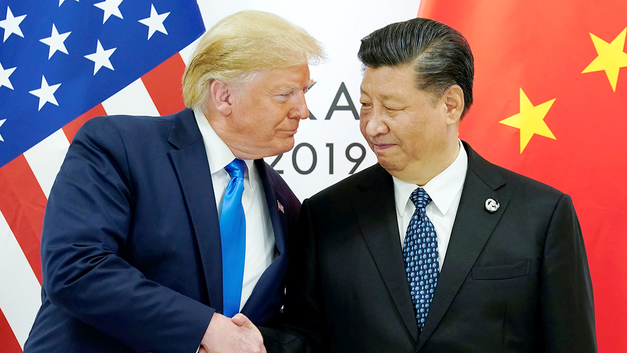China-U.S. Intensifies Trade War: Economic Impact Amid Trump's Tariffs and China's Countermeasures
Washington: In response to U.S. President Donald Trump's new tariffs on Chinese goods, China announced new tariffs on certain U.S. products on Tuesday morning. These tariffs will take effect from February 10, covering various products such as coal, liquefied natural gas (LNG), and agricultural machinery.
President Trump authorized an executive order to impose an additional 10% tariff on Chinese goods. Additionally, 25% additional tariffs were imposed on imports from Canada and Mexico, and a 10% tax was levied on oil, natural gas, and electricity imports from Canada. However, Trump has temporarily suspended these tariffs on Mexico and Canada for 30 days.
China's Ministry of Finance announced that it would impose a 15% tariff on coal and LNG, and a 10% tariff on agricultural equipment, crude oil, and large-engine vehicles imported from the United States.
In addition, China launched an anti-monopoly investigation against Google's parent company Alphabet Inc. and added U.S. companies such as Illumina and PVH Corp. (which owns Calvin Klein) to its "unreliable entities" list. China's Ministry of Commerce and Customs Administration also revealed that they are imposing export controls on certain rare earths and metals, which are crucial for high-tech gadgets and the clean energy transition.
These new tariffs will come into effect on February 10. During his first term, Trump initiated a year-long trade war with China over its massive trade surplus, resulting in tariffs being imposed by both sides, damaging global supply chains and the world economy.
Trump warned China that if it does not stop the flow of fentanyl into the U.S., tariffs would be raised further. In response, China stated that the flow of fentanyl is an American problem and it would challenge these tariffs at the World Trade Organization and take other countermeasures, although it remains open to dialogue.










